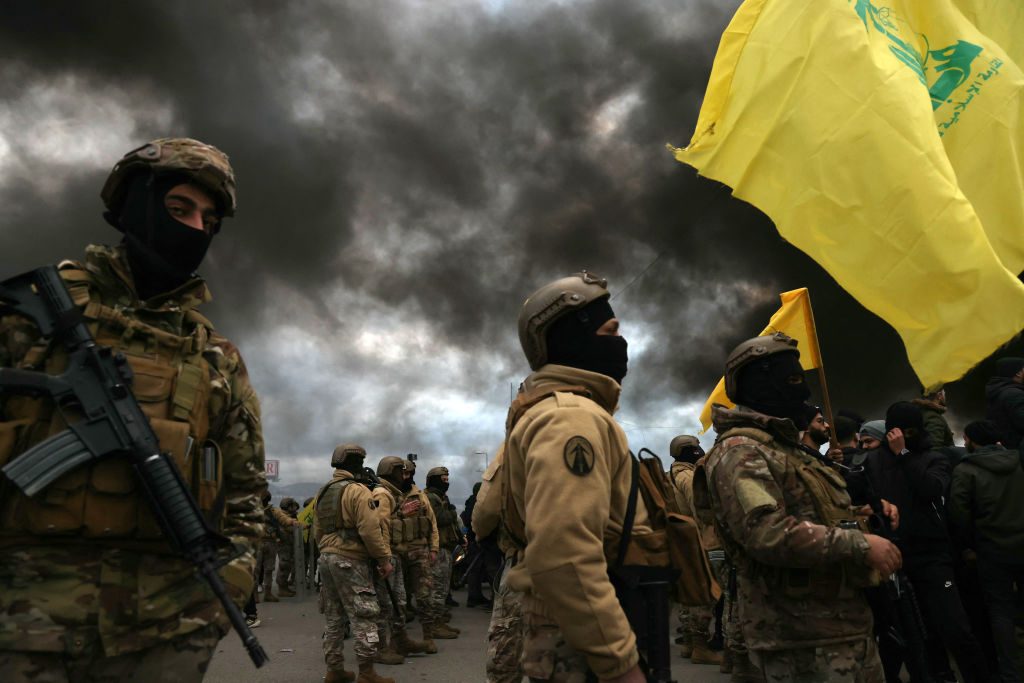In the face of Saturday’s Israeli strike on Lebanon and subsequent threats to ramp up attacks, Hezbollah faces a significant challenge. Israeli military and intelligence actions caused massive damage to the group in September 2024: its leader Hassan Nasrallah was assassinated, along with almost all of Hezbollah’s command and senior operations staff. In another striking incident that same month, dozens of fighters were killed and more than 3,000 wounded when Israel detonated explosives hidden in pagers used by the group. Alongside simultaneous Israeli strikes on weapons depots and fighting positions, these attacks have greatly diminished the group’s military capability and confidence.
Still, Hezbollah isn’t down and out. Under new leader Naim Qassem, the group is slowly but steadily reconstituting its weapons stockpiles and attempting to learn from the recent devastation it has suffered. Hezbollah knows that the primary cause of that devastation was Israel’s infiltration of the group via spies, as well as its use of financial and technical surveillance. To reduce these vulnerabilities, the organization is reinforcing its counterintelligence apparatus and attempting to return to its roots as an army of the shadows rather than one operating in the open. Its catastrophic recent failures notwithstanding, Hezbollah has shown an ability to conduct effective counterintelligence, rounding up numerous CIA recruited agents during the first Obama administration.
But the group is also demonstrating nuance. In return for the Lebanese Army’s restraint from conducting raids and arrests against its strongholds in Beirut and the Beqaa Valley, Hezbollah is essentially allowing the armed forces to dismantle its military posts near the Israeli border. And while President Joseph Aoun and Prime Minister Nawaf Salam are taking steps to reduce Hezbollah’s military power, these steps are so far only tentative. They fear that more robust action would lead the group to take up arms against the government, plunging Lebanon into another brutal civil war.
The problem is that this status quo is unacceptable to Israel, Saudi Arabia, and the United States. Israel is now escalating military strikes against Hezbollah targets outside of Beirut, while US Ambassador to Turkey Tom Barrack described Lebanon on Saturday as a “failed state” and its leaders as “dinosaurs”. Barrack added that though it was impractical to fully disarm Hezbollah, Lebanon should be willing to forge a new diplomatic relationship with Israel to minimize the group’s power.
This is where Saudi Arabia comes in. If the Gulf kingdom joins the Abraham Accords with Israel, something largely dependent on the successful advancement of US President Donald Trump’s peace plan in Gaza, it will give its Lebanese political allies the political cover and financial support to engage in a similar pursuit with Israel. Unfortunately, Israeli Prime Minister Benjamin Netanyahu’s government seems content simply to play whack-a-mole with Hezbollah, destroying targets as they appear but not pursuing any meaningful diplomatic outreach with the government. Barrack suggested, however, that Israel would be open to negotiations under US pressure if Lebanon showed openness to that possibility.
What happens next depends on whether the Lebanese government is willing to break its third rail and start engaging with Israel. If it does, the Trump administration is likely to pressure Israel to pursue a new relationship with Lebanon — one designed to gradually alienate Hezbollah from the political process and provide for persistent security along Israel’s northern border. But if Lebanon continues on its present path, Hezbollah will bide its time to rearm for the next war. Then, it will be far better prepared than it was last year. Israel knows this, so the bombing is unlikely to stop any time soon.











Join the discussion
Join like minded readers that support our journalism by becoming a paid subscriber
To join the discussion in the comments, become a paid subscriber.
Join like minded readers that support our journalism, read unlimited articles and enjoy other subscriber-only benefits.
Subscribe